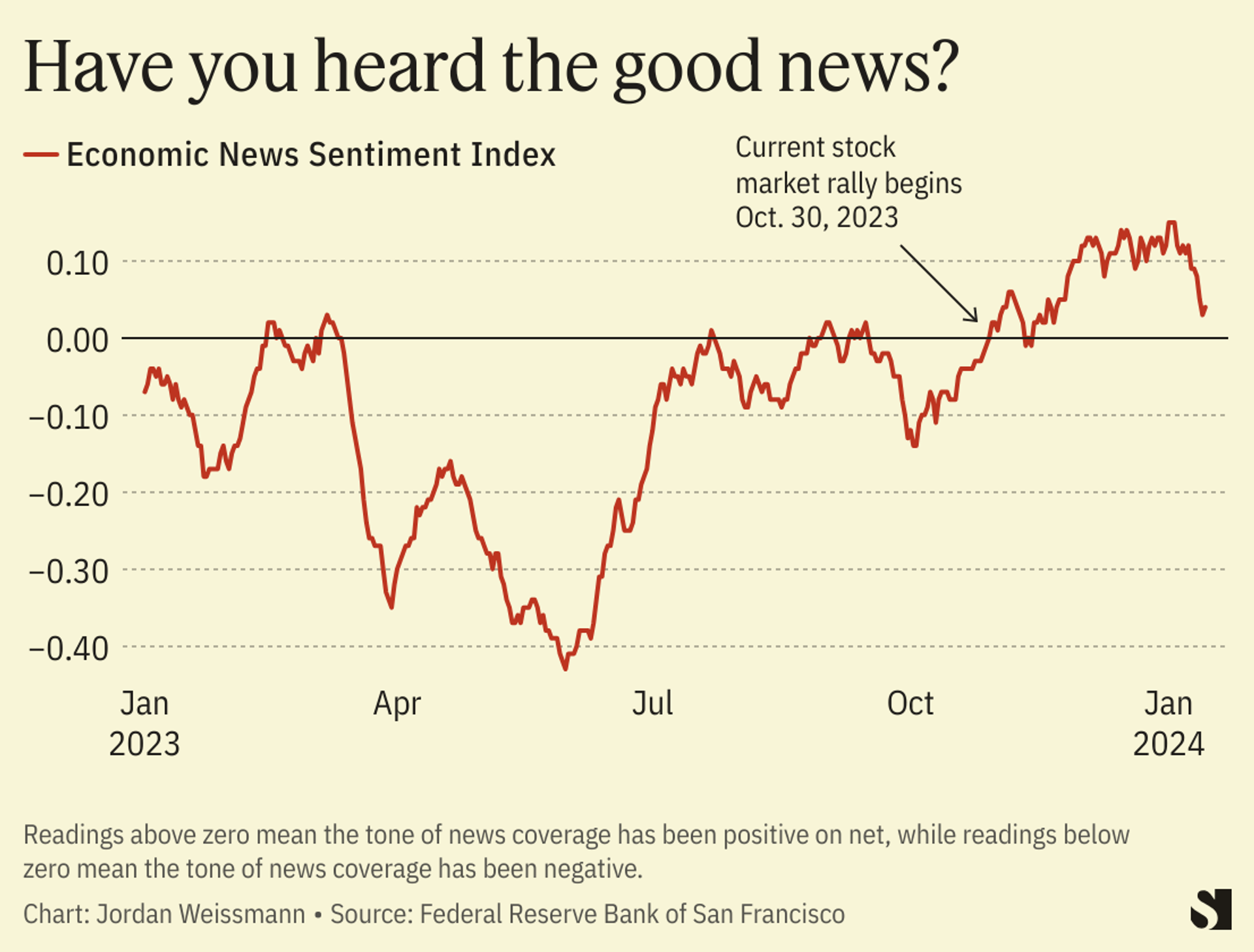The Data Point
Americans are starting to feel more upbeat about the economy: Last week, the University of Michigan’s closely watched consumer sentiment index jumped to its highest level since July 2021. It’s now up 29% over the last two months. But why the sudden outbreak of optimism?
The Take
News of tapering inflation has surely helped. But I’d wager that the stock market rally that’s pushed share prices to new records has been an equally important factor.
As you might expect, research has shown that rising stock prices brighten consumers’ moods, at least in the short term. People feel richer (never forget that around half of U.S. households own equities, even if only in a retirement account) plus bull markets beget glowing headlines. Notably, the Federal Reserve Bank of San Francisco’s index that tracks the tone of economic news coverage has clocked positive numbers on all but two days since Monday, Oct. 30, when the current rally began.

While inflation is usually the main suspect (for good reason), the stock market’s doldrums over much of the past two years may have been partly to blame for the poor economic vibes. As the markets tumbled in 2022, the share of Americans who said they felt on track for retirement fell from 40% to 31%, the lowest reading since at least 2017, according to the Federal Reserve’s last Report on the Economic Well Being of Households.
The relationship isn’t perfect, though: The stock market also rose from Oct. 2022 through July 2023, before hitting a rocky stretch where it gave up a big chunk of its gains. Why didn’t that long rally lead to a burst of new confidence, like what we’re seeing now?
A couple possible reasons come to mind. First, stock prices were well below the highs they reached in 2021, so investors still had reasons to feel salty about their portfolios. Second, business coverage was still dominated by the Fed’s efforts to fight inflation by hiking interest rates, and whether that might cause a recession. Much of the public was convinced that we were either about to enter a downturn or were already in one.
With consumer prices quieter, and the Fed staying put on rates, the hot market is now turning into the hot story. Joe Biden, who has started to actively take credit for its recent highs, had just better hope the S&P keeps up its run.
